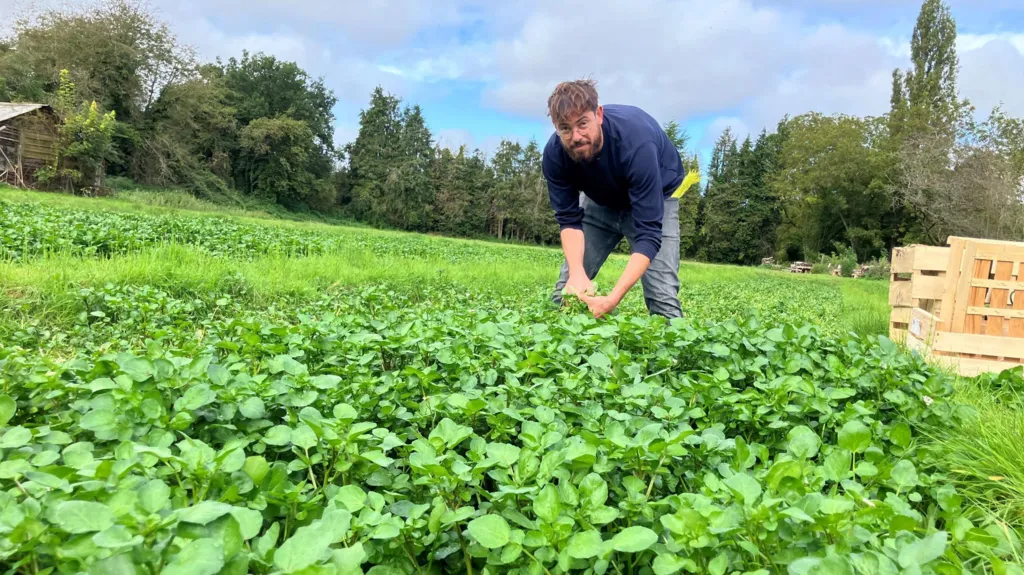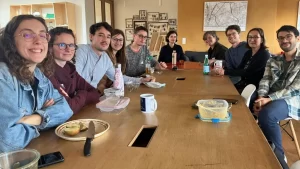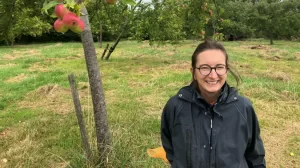Hybrid Workers: Finding Fulfillment in Agriculture
3 min read
Matthew Charlton teaches at a prestigious university - when he is not growing watercress. PHOTO: BBC

Matthew Charlton teaches at a prestigious university - when he is not growing watercress. PHOTO: BBC
In search of a break from monotonous office work, many are discovering a unique solution: part-time farming. This trend is emerging in France, where a new wave of workers is seeking a balance between urban life and rural fulfillment, combining their digital jobs with hands-on agricultural pursuits.
These modern-day pioneers leverage technology and flexible work arrangements to create a hybrid lifestyle that satisfies their yearning for both purpose and financial security. For them, farming is not just about growing food; it’s a way to reconnect with meaningful work that often feels lacking in their corporate jobs.
Physical labor on a farm brings a sense of achievement and clarity about one’s contribution to society. As Julien Maudet, a data engineer turned cider-maker, puts it: “In the corporate world, there are more and more people questioning the meaning of what they are doing. There’s an awful lot of burn-out and anxiety.” On the farm, he argues, the purpose is evident: producing food for people, even amid the uncertainties of agricultural life.
Maudet co-founded Slasheurs-cueilleurs, an organization promoting these crossover careers. The name cleverly references both “hunter-gatherers” and the modern trend of having multiple jobs, akin to the slash in “chef-slash-football coach.” This idea blossomed during the COVID-19 lockdowns, when Maudet sought solace at his grandparents’ farm in Normandy. He soon discovered a burgeoning community already engaged in this lifestyle. “We invented nothing. We just shone a light, he reflects.
A prime example of this hybrid lifestyle is Matthew Charlton, an English teacher at the Sorbonne, who now dedicates over half his week to cultivating watercress on a smallholding 64 kilometers south of Paris. Once a thriving agricultural area known for its “green gold,” many watercress farms had fallen into disuse since the 1970s. Now, thanks to Charlton and others like him, they are experiencing a revival.

“The beauty of watTheercress is that you don’t need machinery or massive investment,” Charlton explains, highlighting the simplicity of his work with just gumboots and a knife. He harvests around 30,000 bunches each year for sale to local farm shops and Parisian restaurants. “I work at the university on Mondays and Thursdays, and the rest of the week, I’m here at the farm or delivering in Paris. This lifestyle suits me perfectly. I get to recharge in the city while enjoying the outdoors.”
Participants in this movement come from diverse backgrounds, with some inheriting family land, while others rent or share resources with existing farmers. Their urban roles range from lawyers to engineers, while their rural identities often include market gardeners or wine producers. A notable aspect is the collective desire for spiritual fulfillment and sustainable practices. Many agree that office work can sometimes leave them feeling disconnected and unfulfilled.
Marie Paitier, a cider-maker and HR consultant, shares her experience of burnout stemming from her corporate job. “It wasn’t just my employer’s fault. It was me. I was working too hard,” she admits. By dividing her time between Normandy, where her children go to school, and Paris, where she works part-time, she finds a healthier balance that allows her to appreciate both worlds.

Historically, urbanites have yearned for simpler rural lives, with various migration waves occurring over the decades. However, the current landscape is different, fueled by advancements in technology such as remote work and AI, along with an increased focus on ecological responsibility.
Maudet emphasizes that this movement isn’t merely a trend for affluent city dwellers playing at farming. “Our vision is that this will be part of a fundamental change,” he asserts. He believes that farms require more hands to produce quality food, warning that without new entrants, agriculture may become increasingly industrialized.
As office workers face the specter of job displacement from automation, this hybrid approach could offer a resilient alternative. Maudet envisions a future where society benefits from a blend of urban and rural skills, fostering a more sustainable and interconnected community. Embracing hybrid lives, these individuals are not just cultivating crops; they are sowing the seeds of change for a more meaningful existence.